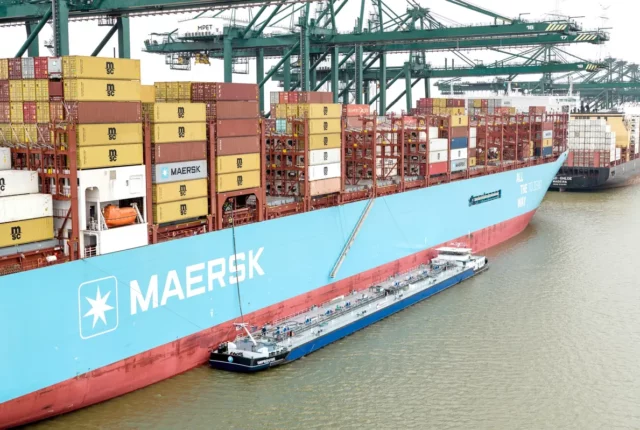
U.S. Trade Deficit Widened to Record Lows as Imports Rebound
The U.S. trade deficit widened to a record low in August as American consumers continued to show a strong appetite for imported commercial cargo such as pharmaceutical products, toys and clothing.
The Commerce Department on Tuesday said the trade gap in goods and services expanded to $73.3 billion in August from $70.3 billion in July as the Delta variant of Covid-19 and supply constraints weighed on global trade.
The August deficit was slightly larger than the prior record of $73.2 billion in June. Imports rose 1.4% in August to $287 billion, also a record high, reflecting higher shipments of consumer goods, as well as industrial supplies by business customers.
As many economies around the world continued to emerge from pandemic-related restrictions, exports also rose to $213.7 billion, up 0.5% from July.
Economists say the pace of the increase in imports is likely to slow in the coming months as U.S. consumer demand cools down.
“With most other economies still behind the U.S. in their recovery from the pandemic, and domestic consumption growth slowing, we still think goods exports will start to catch up with imports soon,” Andrew Hunter, senior U.S. economist for Capital Economics, a research firm, wrote in a note.
Though shipments into and out of the U.S. grew overall in August, issues with global-supply chains continued. As a severe shortage of semiconductors forced auto makers to reduce their production, exports of vehicles and parts fell 8%, while imports also shrank 5.2%.
Citing the chip shortage and historically low inventories, General Motors Co. said last week its auto sales in the U.S. fell roughly 33% in the third quarter.
Sea shipping representatives say congestion at ports and labour shortages continue to create bottlenecks in cross-border trade.
“We are witnessing unprecedented sea freight services disruptions and global delays and shortages on essential goods including electronics, food, fuel and medical supplies,” the International Chamber of Shipping and other transportation industry groups wrote in a joint letter to the United Nations General Assembly last week. “Commercial shipping and Project Cargo demand is rising and the delays look set to worsen ahead of Christmas and continue into 2022.”
The U.S. trade deficit with China widened to $31.7 billion in August—the largest gap since July 2019—from $28.6 billion the prior month. Exports declined while imports continued to grow.
U.S. Trade Representative Katherine Tai said Monday that the U.S. will start conversations with China over its compliance with a bilateral trade agreement implemented last year during the Trump administration. China is far behind on its pledge to sharply increase imports of manufactured goods and other products from the U.S., analyses of trade data show.
After a brief pullback earlier in the summer, imports into the U.S. rebounded in August in line with stronger consumer demand. Personal spending on goods and services rose 0.8% in August following a 0.1% decline in July, the Commerce Department reported Friday. The increase came as personal income edged upward by 0.2% in August, reflecting wage gains and the federal government’s distribution of child tax credits.
The surplus in services trade continued to shrink in August, aiding the widening in the overall deficit. Pandemic-related restrictions pushed down spending by foreign visitors in the U.S., while travel spending by Americans overseas increased. A planned easing of limits on inbound travel in November is likely to push up the services surplus again, economists say.






